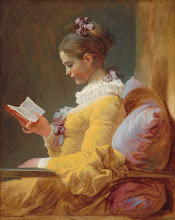"Can such abominable pride as his, have ever done him any good?"
Author: Jane Austen
Editor: Peerage books
Publication date: 1813
Number of pages: 225
Summary: Set in England during the 19th century, the story revolves around the five daughters of the Bennet family, especially the two eldest Jane and Elizabeth. Jane is described as a beautiful and modest girl, while Elizabeth, the main character, is intelligent, bold and lively. One day, rumors went around their entire village that a wealthy single young gentleman, named Charles Bingley, bought the manor of Netherfield Park nearby Longbourn where the Bennets lived, and was going to settle there with his close ones. Mrs. Bennet, who is desperate to find a husband for each of her daughters, thought this of the perfect occasion to get them to know Bingley, and soon afterwards, they all met during a ball at Netherfield. Bingley spends almost the whole evening dancing with Miss Bennet and his friend, Mr. Darcy rejects Elizabeth's invitation to dance, which shocks her and makes her think of him as arrogant and unfriendly. How the book rapidly becomes a love story between these two characters will I leave you to discover…
My opinion: It has been some time I've wanted to read Pride and Prejudice, but I never had enough courage to pick it up. This summer, I thought it was a perfect occasion given I had all the time in the world to read it slowly and carefully to not miss anything. In addition, I saw that the movie was recently added to Netflix and I absolutely wanted to read it before watching it. Otherwise I knew I would never read it (well at least that is what happened with Little Women… I started it but never actually finished it… but that is another subject). So I started it and surprise! It was not easy at all. I wouldn't say that it was complicated but the vocabulary and the sentence structure of the late 18th century-19th century really got to me. I guess you could say that I am not used to reading many old English romantic novels, but last fall I read Frankenstein, which (if you didn't know it) was written in the late 18th century, and I remembered it being fine… Anyways, it took me two weeks to finish and it is not especially a long book. Nevertheless, the most important thing is that I finished it (yay!) and the story was actually not so bad, I turned out to really like it!
I was already shocked after reading only the first sentence… "It is a truth universally acknowledged, that a single man in possession of a good fortune, must be in want of a wife.” Well what a nice way to start a romance novel, I thought to myself in a sarcastic way. But as the story occurs in the 19th century, of course it was going to talk about marriage and its economical compromise, and society's expectations of women. Having five little daughters was not the best situation, it was even considered a burden at that time, unless they expected to marry rich. Not ideal, I know, and luckily for us, Elizabeth, the heroine of this story, also shared (along with her father) a distaste for the importance of wealth and rank. Who could ever think that she was going to end up in love with one of the most wealthy and important personalities of their society!
I, as I think most of the people who have read this novel, absolutely loved the love/hate relationship between her and Mr. Darcy. They both learn so much about themselves from one another and despite their differences, they go so well together! Finally a couple that ends up together because they truly love each other and for no other reason related to money or social status!
With all this said, I think you got an idea of the themes covered in this book: class, estate, women, love and marriage. Two other main ideas, hence the title, that I have yet not talked about, are pride and prejudice. These are two important obstacles in Elizabeth and Darcy's relationship, but that is everything I will say, to not spoil you the reading.
To sum up, Pride and Prejudice is one of the greatest novels in English literature and I am very happy to have read it as I was not disappointed at all. The language might be, at some points, difficult to understand, but it didn't stop me from comprehending and enjoying the whole story. (I am just a high school student, so it is probably fine for people with a little more literary experience :))
Happy reading!!
P.S: I think this novel is perfect for fall. It goes very well with the whole "autumn aesthetic" ;)
P.P.S: Did someone watch the movie? And if so, do you recommend it??


Commentaires
Enregistrer un commentaire